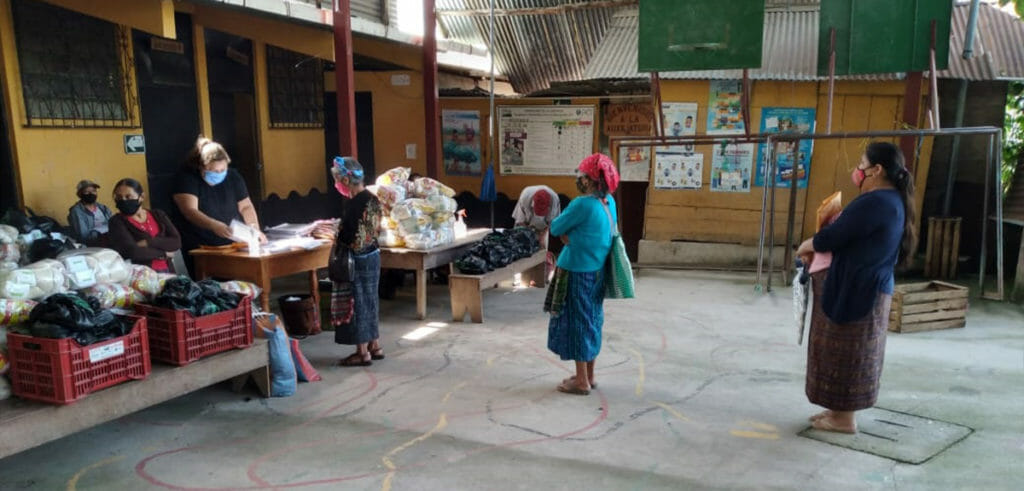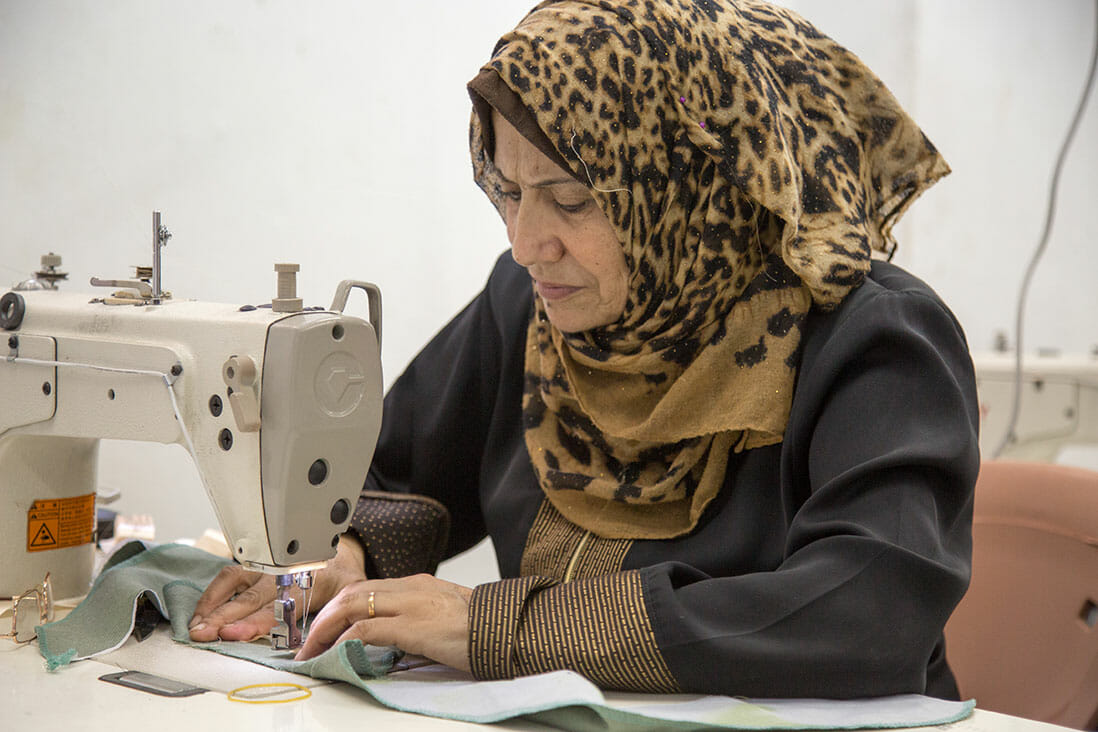From natural disasters to armed conflicts, Global Communities partners with affected communities to provide immediate relief in ways that enable communities to quickly recover while strengthening market systems that help restore livelihoods at the household, local and regional levels.
Our central goal is to build the capacity of communities to direct and improve the development of their own lives and livelihoods. Global Communities’ approach to early recovery is rooted in market-based practices and draws on community engagement methodologies and established local networks of partners to provide context-appropriate support to local communities and vulnerable households.
We adhere to the Minimum Economic Recovery Standards, internationally recognized best practices for building resilience for crisis-affected communities, laying the groundwork for markets that are more inclusive of people experiencing poverty and other vulnerable groups over the long-term.
Our Approach
Global Communities’ early recovery approach is rooted in the following principles.
Market-aware
We conduct market assessments before beginning our work to identify local actors, opportunities and barriers and continue to conduct assessments and adapt with the fluidity of the context. Where immediate direct services are required to mitigate crisis, we do so with an eye to transitioning to market facilitation as soon as possible. For humanitarian assistance to the most vulnerable, we prioritize cash transfers over procurement of aid commodities to support local markets where they are functioning.
Locally-driven
We use our local networks and economic strengthening strategies to support and scale adaptation and innovation by local actors, such as traders, mobile money operations and financial service providers. Similarly, we draw on our robust relationships with local communities and government leaders to assist them with crafting key messaging, co-strategizing policy roll-out and compliance efforts, and providing appropriate capacity building measures.
Systems-focused
While providing support to households when needed, Global Communities simultaneously focuses on rebuilding the capacity and resilience of market institutions, both private sector and governmental. For example, we partner with small and medium enterprises, including cooperatives and their apex organizations, in the agricultural supply chain to leverage their positions as buyers of the production of smallholder farmers. Taking a systems lens also means considering the needs sparked by the crisis — basic food supplies, water and sanitation services, protection and health supplies or distance education — and working with local entrepreneurs to meet them through market-based means.
Do No Harm
All of Global Communities’ programming is designed to Do No Harm. In early response programming, we thoughtfully design and implement activities that safeguard the health of participants and staff and avoid exacerbating existing tensions or economic inequalities. We leverage local markets for humanitarian response wherever possible rather than replacing them with imported assistance.
Gender and inclusion
Global Communities seeks to identify the needs and constraints of the most vulnerable or marginalized groups in a particular context, including women, internally displaced persons and refugees, minorities, or people with disabilities. Women, particularly those who are the sole income earners in their households, are vulnerable given that their economic activities are frequently in the informal sector or in services and sectors particularly affected by disasters or conflict.
Sequencing and layering
Global Communities engages with local stakeholders to identify an explicit sequence and deliberate layering of targeted, relevant and feasible interventions that can have the greatest impact in sustaining development and on the incomes and well-being of people experiencing poverty and other vulnerable groups.
Our work in this area reaches
Resources
Research & Publications
Humanitarian Assistance, Resilience, and Rebuilding: The Long-term Impact of the Neighborhood Approach on Post Earthquake Haiti
Summary of FindingsA Post-Project Sustainability Study of The KATYE Project The January 12, 2010 earthquake in Haiti was the largest natural disaster in the country’s history. Residents were confronted with a tragedy of monumental scale and the daunting task of building back. Among the hundreds of projects implemented in response to the disaster was the…
NEWS
Latest stories from the blog

Protection in Northern Syria
The Path Forward is a CSIS Humanitarian Agenda series of reflections from humanitarian organizations on the challenges in food security, disrupted health systems, humanitarian access, civilian …
Read More
Emerging Farmers Partnership GDA
This article was originally published by USAID. Zambia’s development holds much promise but faces much peril. Urban economic growth has boomed, however rural areas have …
Read More
‘Our Harvest’ Project Delivers Food, Hope to Guatemalan Families
Since the Government of Guatemala announced a “state of calamity” following the outbreak of the COVID-19 pandemic in Guatemala, PCI, a Global Communities Partner, has …
Read More
USAID Mission Director Sheryl Stumbras at Emerging Farmers Partnership Launch and MOU Signing
This article was originally published by USAID. Harry Ngoma, USAID/Zambia Minister of Agriculture Honorable Michael Katambo, Global Communities COP Nobel Moyo, Corteva Country Director Samson …
Read More

